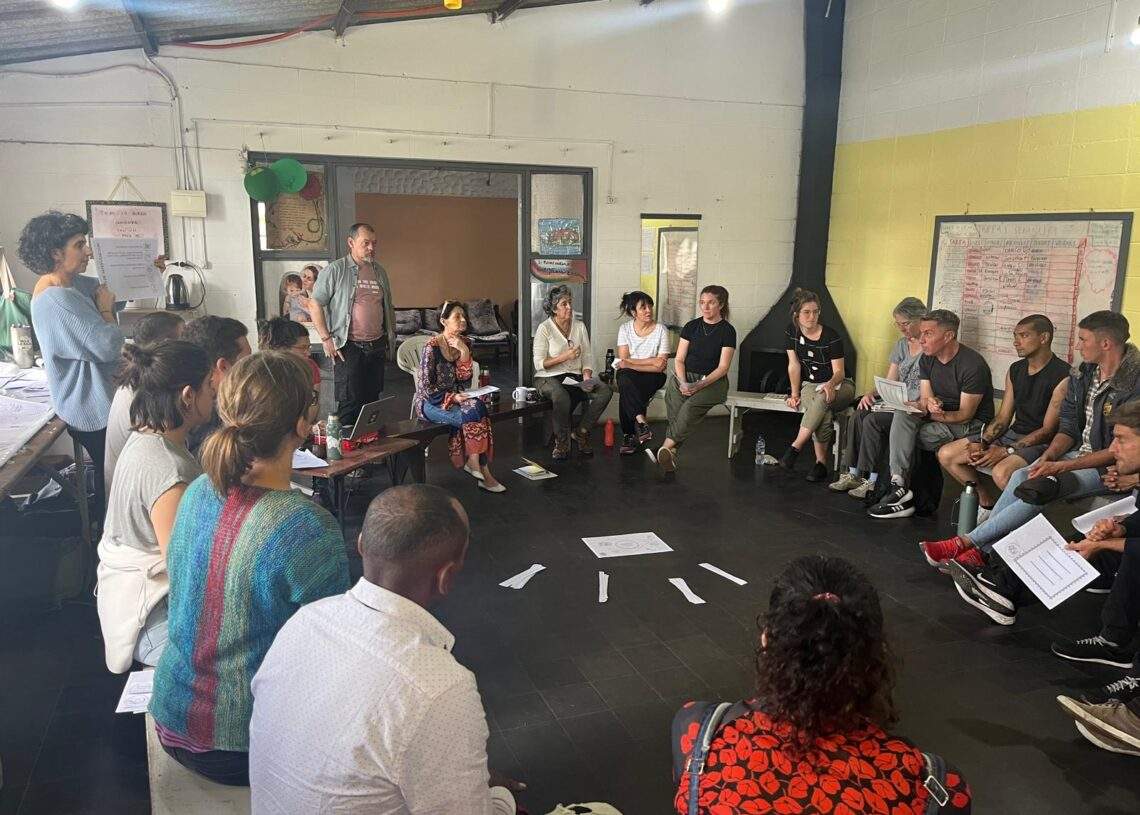COPOLAD III, the National Drug Board of Uruguay and Agirre Lehendakaria Center, a social innovation laboratory linked to the University of the Basque Country, have combined their knowledge and experience to set up a social innovation laboratory in the metropolitan region of Montevideo, dedicated to promoting innovative strategies to prevent drug micro-trafficking. This laboratory will work with a focus on women in charge of minors who, on occasions, form part of the illicit drug trafficking chain as they find in this business an economic livelihood strategy. ‘Laboratories’ because they are spaces for experimentation, ‘innovation’ because they seek to provide different answers through shared learning and ‘social’ because they do so with proposals that come from the communities themselves.
As part of this initiative, the first sessions of this laboratory took place between 6 and 8 November. Representatives from the National Drug Board, the NGO El Abrojo, the National Directorate for the Support of the Released (DINALI) and the National Women’s Institute (Inmujeres) participated in the sessions.
In addition, the team participated in a community meeting in El Achique, a day centre for care, treatment and coexistence for people in situations of socio-economic vulnerability and/or problematic substance use. On this day, a first session of interpretation and collective listening was held to share the different ways of perceiving the same problem and that, repeated over time, can help to generate shared visions and a deeper analysis of the critical nodes on which to focus public policy strategies in terms of social innovation.
This analysis will inform the process of co-designing solutions that will take place over the coming months. The aim is to ensure that the strategies developed by the teams incorporate the capacity to respond to the different narratives and perceptions that exist in the territory and allow them to constantly adapt to changes, thus generating flexible governance systems to address complex challenges such as drug micro-trafficking.
COPOLAD III and the Agirre Lehendakaria Center are already developing 3 other social innovation laboratories in Chile to address drug use among minors under the guardianship and protection of the State, in Colombia to address the drug problem from a social inclusion approach and within the framework of Colombia’s National Drug Policy, focusing on vulnerable youth, and in Peru to promote an Early Warning System (EWS) to protect native communities from illicit drug cultivation businesses.






